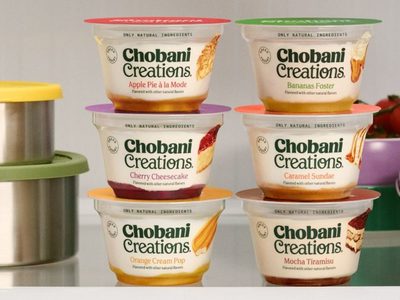PURCHASE, N.Y. – Operating profit declines in PepsiCo, Inc.’s Americas Beverages and Quaker business units helped pull down its earnings for fiscal year 2012. For the year ended Dec. 29, 2012, PepsiCo net income fell 4% to $6,178 million, equal to $3.92 per share on the common stock. This compared with income of $6,443 million, or $4.03 per share, in fiscal 2011.
Sales for the year declined 1.5% to $65,492 million, down from $66,504 million.
The Americas Beverages and Quaker business units saw operating profit fall 11% and 12%, respectively, for the year due to increased commodity costs and higher advertising and marketing expenses, according to the company.
“There is still growth potential in carbonated soft drinks outside of colas,” said Indra Nooyi, chairman and chief executive officer, in a conference call with financial analysts on Feb. 14. “Evidence the fact that Mountain Dew, our second-largest C.S.D. trademark, grew volume in North America in 2012; and we continue to innovate behind Dew, as you saw with the launch of Mountain Dew Kickstart earlier this week. However, colas have been under pressure for some time now. Colas have declined as consumers have increasingly sought greater variety in their repertoire of beverages.
“So what is our approach on colas? Simply put, we would like to lead disruptive innovation. The industry has not had truly meaningful innovation colas since the introduction of diets in 1960s. Our research indicates that consumers still love bubbles; they love the cola taste, but would like to lower their caloric intake without the taste of artificial sweeteners.
“So as we shared with you over a year ago, we have been developing new natural sweeteners and flavorings aimed at reducing calories with no compromise on taste. We have some promising projects that are currently going through the F.D.A. review process, that once commercialized could potentially alter the trajectory of our cola business in a meaningful way.
“And in the meantime, we are just going to continue to appropriately invest behind trademark Pepsi with marketing and innovation in order to maintain consumer excitement in the brand.”
In addition to focusing on innovation, Ms. Nooyi added that the Americas Beverage business will focus on supply chain optimization, the implementation of price-backed strategies to improve revenues, and reviewing a variety of structural alternatives for the business.
PepsiCo’s Frito-Lay North America business unit’s operating profit increased 2% during the full year due to revenue gains and productivity initiatives.
“Frito obviously plays a critical role in the PepsiCo portfolio,” Ms. Nooyi said. “It still enjoys terrific leadership in the growing savory snack category, with lots of room to grow in the overall macro snacking market here in the United States and North America as a whole.
“Specifically, Frito is focused on generating steady, predictable growth and value creation by sourcing locations from other macro snack categories, growing into the premium segment of snacks, and selectively competing in the value tier of the category. And doing all of this in a sensible, margin-accretive, competitively advantaged manner.”
During the fourth quarter, PepsiCo’s net income rose 17% to $1,661 million, equal to $1.07 per share on the common stock, up from $1,415 million a year ago. Sales for the quarter decreased 1% to $19,954 million.


